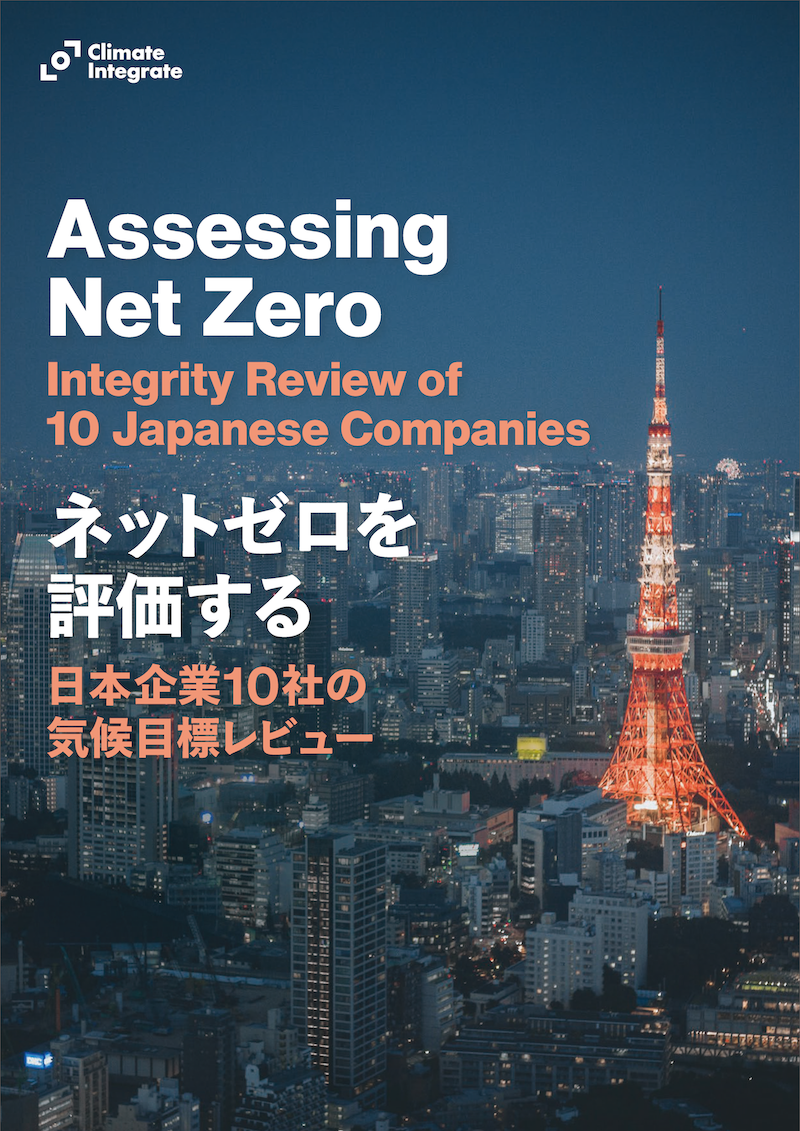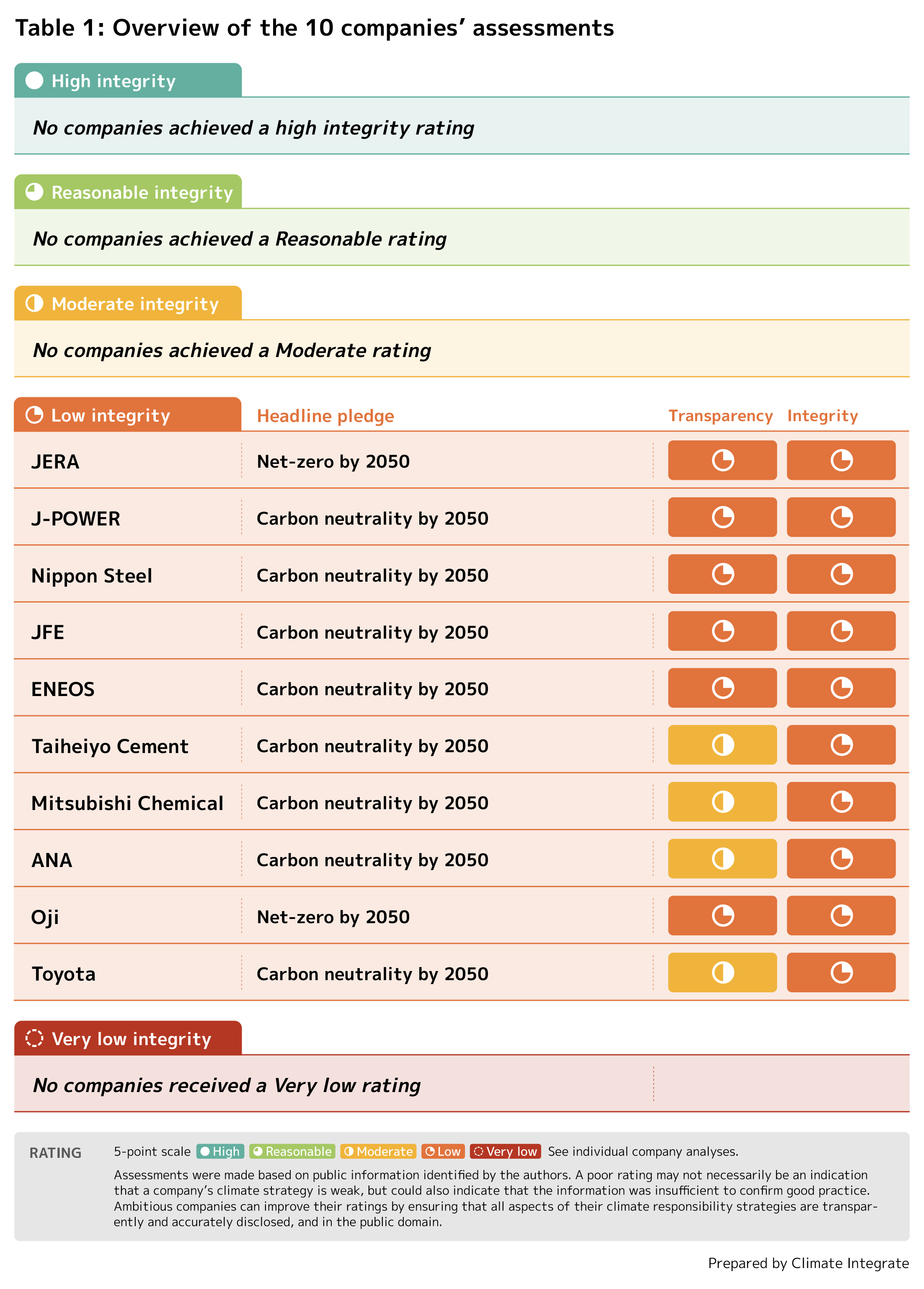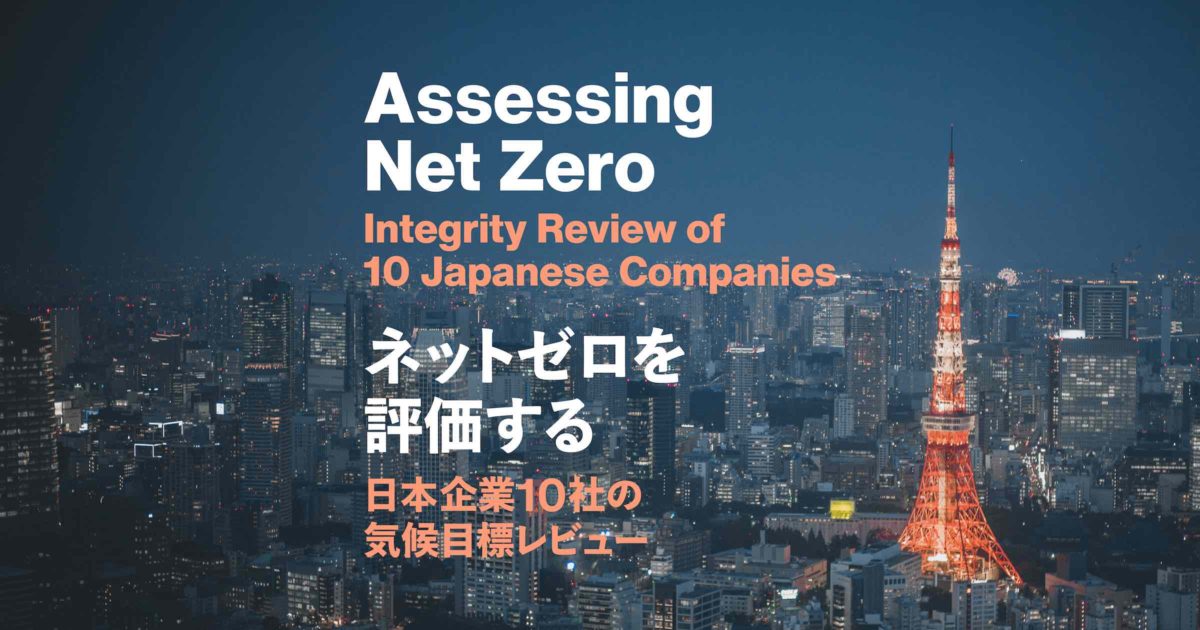
Our new report analyzes the transparency and integrity of climate pledges of 10 major Japanese companies.
Many Japanese companies have pledged to achieve carbon neutrality in response to the urgent need to address climate change. What are their corporate targets and measures? Are they 1.5°C-aligned?
This report evaluates the transparency and integrity of climate pledges and measures of major Japanese companies and examines the credibility of their plans for offsetting emissions, based on methodologies developed by NewClimate Institute, a climate change policy think tank based in Germany, for the Corporate Climate Responsibility Monitor 2023 (CCRM2023). The methodologies cover four main areas of corporate climate action:
- Tracking and disclosure of emissions
- Setting emission reduction targets
- Reducing own emissions
- Taking responsibility for unabated emissions through climate contributions or offsetting
Companies assessed in this report include JERA and J-POWER (electric utilities), Nippon Steel and JFE (steel), ENEOS (oil and gas), Taiheiyo Cement (cement), Mitsubishi Chemical (chemical), ANA (transport services), Oji (paper and forestry), and Toyota (transport OEMs). The total scope 1 and 2 GHG emissions of these 10 companies accounted for 36% of Japan’s total GHG emissions in the 2020 fiscal year, which means that they have a significant responsibility for achieving net-zero emissions in Japan.
Our key findings are as follows.
- Climate strategies of all 10 companies rank low in integrity.
- Poor emission disclosure limits third-party assessment of their climate efforts.
- The 10 companies’ 2030 targets and 2050 net-zero pledges fall far short of the ambition required to stay below the 1.5°C temperature limit.
- Companies’ proposed measures are insufficient to catalyze the transformational change that is necessary to limit global warming to 1.5°C.
- Shift to renewable electricity is slow, from both the supply side and demand side.
- Credibility of offsetting planning – under various guises – is in question.
- Companies’ insufficient climate pledges need to be immediately addressed to unlock the potential of corporate climate actions in this crucial decade towards 2030.
Comments
Hiroaki Odawara, Program Director, Climate Integrate
“Many companies in Japan have made 2050 net-zero or carbon neutrality pledges. However, our research shows that almost all of the climate targets and measures of major Japanese companies fall short of the benchmarks developed by international organizations and initiatives to test alignment with the 1.5℃ goal of the Paris Agreement or the need to achieve global net-zero emissions by 2050. Companies need to set science-based targets and immediately implement climate measures.”
Kimiko Hirata, Executive Director, Climate Integrate
“We need to strengthen measures leading to 2030 in order to achieve the 1.5°C goal. Our research shows that Japanese companies need to ensure more transparency and integrity. We expect companies to assume full responsibility for their voluntary net-zero targets.”

Contact:
Climate Integrate Secretariat
Email: contact@6-1-log.com
TEL: +81-3-6453-7570

